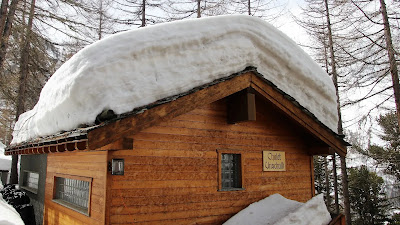Winter-Proofing Your Home. All You Need To Know!
Colder temperatures and blustery winds will soon be a part of our daily life as winter ebbs ever closer. It’s important to begin winterizing your home long before the icy temperatures arrive. By taking a little time each weekend, your home will be ready for winter weather without much effort. You can keep more warmth in your home by taking the time to winter-proof your home.
Begin by checking with your local utilities to see if they have any programs to help you save on your winter energy bills. Many utilities have a home heating check-up or can at least recommend steps you can take to ensure your home isn’t wasting energy during the winter months. With proper upkeep and weatherproofing, you can save money this year.
One of the easiest things to do to winter-proof your home is to check for leaks around your windows and doors. Light a candle and hold it about six inches from the window or door and move it around slowly. If the candle flickers, you know there’s a leak in that area. By weather stripping or caulking to stop the leaks, you can save up to 15% off your heating bill.
After you’ve added weather stripping, there could still be a draft. You can find plastic sheeting kits that will help block drafts, at most home improvement stores and even discount stores. The plastic sheet is stretched over the window and then gone over with a blow dryer. This creates a barrier, which will keep the cold air out.
Crawl under the home or in the attic, wherever your ductwork is, to check the seals, as they will wear out over time and with use. Replace any ductwork that is damaged and re-tape any joints, which have come loose. While you’re working around the ductwork, you may also want to ensure there is enough insulation in both areas of your home.
Your heating unit or furnace should be checked each year to ensure it is working properly. Have a professional come out unless you’re very familiar with the mechanics of your furnace. Remember to clean or change the filter in your furnace each month during the winter. This will help it run properly and could reduce your heating bill. If your heating system runs on natural gas, you’ll want a professional to check it for gas leaks.
Clean out the gutters around your home and inspect the fascia boards. While you’re up along the roof, check the roof for damage and cracks in the chimney if you have one. Make any repairs that are needed to ensure your home is as safe and secure as possible before winter arrives.
Winterize your air conditioner, whether it is a window unit or a large whole-house unit. Shut the water off to the air conditioner so you don’t have to worry about it freezing. You’ll also want to cover it with an insulated blanket to keep snow and debris out of it.
Insulate pipes, wires, or vents, which lead outdoors. This will help keep cold air outside where it belongs. It would also be helpful to check around your light switches and electrical plugs. If you notice drafts around them, you can put insulation behind the plate to keep the cold air out.
When you winter-proof your home, the time
and effort are an investment in your home. Winterizing your home will result in
a warmer house even if you set your thermostat a couple of degrees cooler.
You’ll also notice a difference in your energy bills during the winter months.
Click here, to learn How to Lower Energy Costs Without Investing Money!
If you have any questions or would like to help with advice, feel free to leave a comment and I will answer as soon as I can.
Thanks!



Comments
Post a Comment